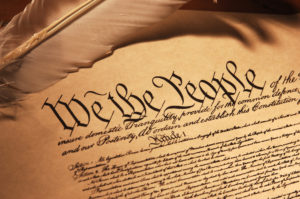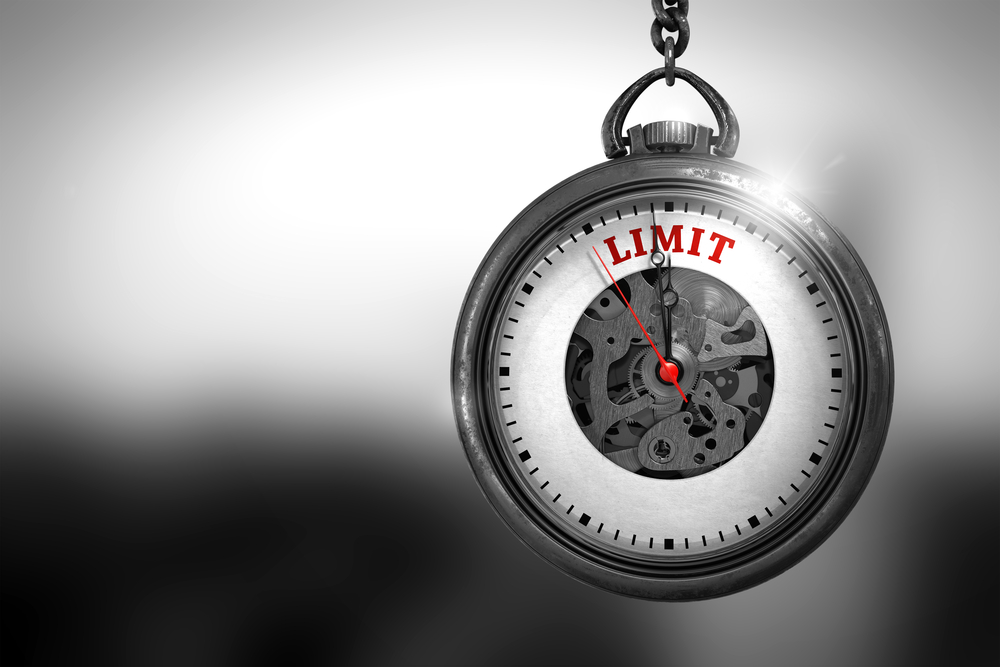In my previous post, I laid out the premises that make up Enlightenment liberalism and conservatism, according to Yoram Hazony. Both conservatism and liberalism, in Hazony’s telling, make individual liberty a virtue. The difference is that liberalism treats individual liberty as a value of categorical importance, always functioning as a trump card over any other concern. To conservatives, however, “the liberty of the individual is a fine thing, both good in itself and worthwhile for its beneficial effects, when taken in the right proportion. It has, and will always have, an important place in a broader theory of political conservatism.”
But it must, as Hazony says, be taken in the right proportion. And he argues that this is in keeping with the American tradition. The preamble to the Constitution lists the purposes and aims of the new American nation, which are “to form a more perfect Union, establish Justice, insure domestic Tranquility, provide for the common defense, promote the general Welfare, and secure the Blessings of Liberty to ourselves and our Posterity”. Liberty is part of that list, but it is still only one part among many. While all of these are good and worthwhile things, in real life things that are good in principle may conflict with each other in practice. It may sometimes be the case that some of these values might need to be constrained for the sake of others. For example, peace, unity, and justice are all important values, yet when face with a “shameful and ongoing injustice, as with the racial segregation laws in the American South, there may be no choice but for the peace and unity of the country to be damaged for a time, so that injustice may be corrected.” In the same way, it may be the case that the blessings of liberty may need to be constrained, for the sake of securing the general welfare or domestic tranquility.

But the liberal philosophy rejects the idea other values taking priority over individual liberty, or that there are tradeoffs to be made among competing values: “In Enlightenment liberalism, the consent of the free and equal individual is the ultimate principle from which everything else in the system is deduced. Indeed, a dogmatic liberal finds it difficult to justify any kind of law or policy that is not derived from this principle. Conservatives, on the other hand, consider the liberty of the individual to be a precious good to be cultivated and protected, but one that finds its place within a complex of competing principles that must be balanced against one another if the life of the nation is to be sustained.”
Individual liberty matters, but it is not the only thing that matters, and when too heavily emphasized it can make people free to behave ways that destroy the very conditions that make individual liberty possible. For example, “Enlightenment liberalism supposes that political obligation has its source in the consent of the individual” and therefore “if the source of political obligation is consent, political obligation ceases when consent is withdrawn.” But this predictably leads to destructive results: “The results of this happy form of reasoning, according to which no one is ever under any obligation he does not want, are plain to see. Liberal society is one in which everyone is free to pursue happiness, but the most obvious things that must be done to ensure that a family, community, or nation remains functional and whole have become optional.”
But conservatism recognizes that individual liberty must be constrained in order to be survive, and people must bear responsibility to fulfill obligations they did not choose. Liberals are mistaken to assume the existence of individual liberty as an axiom, Hazony says: “Too many believe that the freedom of the individual is a gift that is ours by nature. But there is little truth to this. Every form of liberty that the individual enjoys is due to a tradition of constraint that is inculcated at every level of certain societies from childhood.” Much of the work of ensuring people will constrain themselves in the necessary way has been mediated through strongly held traditions and customs which individuals felt themselves bound to uphold even when found personally undesirable, and for which they were honored for upholding. “The propagation of such self-constraint depends on the honor that a given society is willing to award those who practice it. Indeed, the only known means of causing individuals to shoulder hardship and constraint without coercion or financial compensation is by rewarding them with honor.”
But liberalism lacks any tools to designate one lifestyle or choice as better than any other, or more deserving of honor and respect – as long as the choices are made by an uncoerced, free individual, they are all equally valid in the eyes of liberalism. In seeking to liberate the individual from the constraints of tradition and social obligation, liberalism becomes “an engine of perpetual revolution, which brings about the progressive destruction of every inherited institution, yet without ever being able to consolidate a stable consensus around any new ones.” It is in this way that the liberal focus on individual liberty above all else becomes self-defeating, for “it is precisely those who wish for mild government and generous liberties who should make it their business to speak of the cohesiveness of their society and to find ways of heightening this cohesion and resilience, rather than ceaselessly breaking it down.”
Hazony sees a role for government in this, because history teaches us that how a government approaches these issues has major implications for the order of society. As Hazony sees it, “Whatever government does not honor is weakened by this neglect.” And because “government does, in fact, wield this great influence over what is honored by the respective parties under its rule, and because the very existence of the government and the state itself depends on the degree to which the factions or parties under its rule give honor to one another, it is obvious that government must aim to shape the society it governs in such a way as to encourage mutual loyalty and the mutual exchange of honors that leads to it.” Government is not some impartial overseer of public life, run by detached philosopher kings entirely in the background. It is intrinsically integrated into the functioning of a society, even by its acts of omission, and therefore cannot be relieved of a responsibility to uphold time-honored and socially useful institutions, particularly those that are part of the inherited tradition of the nation over which the government functions.
Hazony is particularly insistent on this point when it comes to religion. He argues that the Judeo-Christian system is intrinsically part of the inherited institutions of Western nations generally and of the United States in particular. Hazony does not shy away from this, clearly insisting “the time has come to regard the encouragement of the traditional religion (or religions) of the nation as having a place of especial importance among the responsibilities of national government. We should, in other words, regard the encouragement of religion as a distinct purpose of national government.”
In the next post, I’ll summarize what Hazony believes the conservative alternative to liberal government would look like.


READER COMMENTS
Richard Fulmer
Nov 17 2023 at 2:03pm
This is not correct. Progressivism rejects all constraints as oppression, but classical liberalism does not. Again, Hazony has to conflate the two to make his case. He also rejects one of the primary tools that classical liberalism offers for designating one lifestyle choice as better than another: the free market.
Free markets reward the bourgeois virtues – honesty, perseverance, thrift, hard work, civility, tolerance – and punish their opposites. Progressives and Hazony seek to weaken market discipline. Progressives want government to ameliorate all pain – severing the link between cause and effect, and placing the consequences of people’s destructive and self-destructive actions on the backs of others. Hazony wants to limit the competition that disciplines the owners and managers of American companies.
Comments are closed.